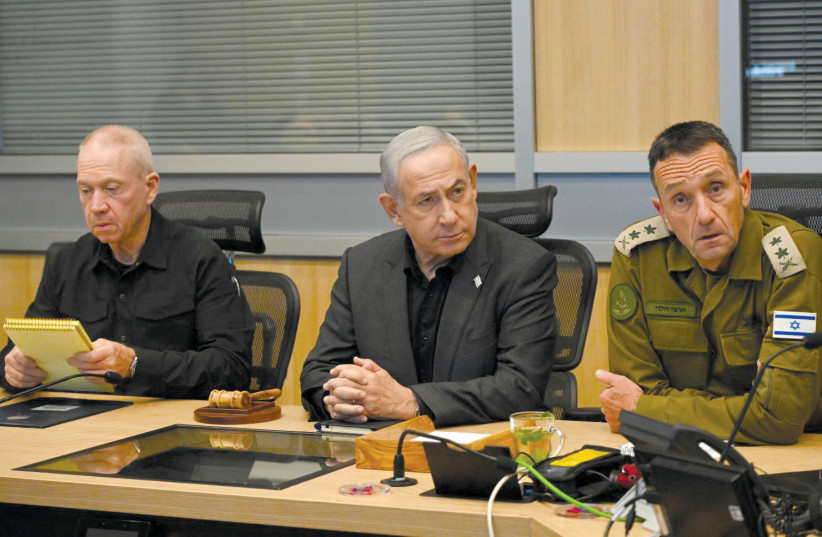The decision by IDF Chief of Staff Herzi Halevi to appoint investigators for an inquiry into the events of October 7— an inquiry that was frozen after news of the intended appointments was made public and prompted immediate backlash from the government— broke the "gentlemen’s agreement" between Halevi and senior IDF general staff, according to which none of them would deal with the failures at the start of the war until the goals of the war had been achieved.
According to this internal IDF understanding, the chief of staff would have appointed the commanders of various divisions to investigate their own teams should the war last long enough that investigations could not be delayed till the war’s end.
In a similar vein of staving off internal fights until the war is won, those at the head of Israel’s defense establishment say that the decision on when to make the next round of senior IDF staff appointments will depend on the duration and intensity of the war in Gaza, the backdrop of negotiations with Hamas for the release of Israeli hostages, developments in Israel’s north and a potential war with Hezbollah, and the potential retirement of major security officials.

No shakeup expected before war's end, but names already on the radar
Security officials emphasize that no replacement process is on the agenda for senior IDF officials at this moment.
But, with an eye toward the future, here are the names currently on people’s radar:
The first candidate to succeed Halevi is Defense Ministry Director-General Maj.-Gen. Eli Zamir, who previously served as military secretary to Prime Minister Benjamin Netanyahu, and has also served as commander of the Southern Command, which oversees Gaza, and as deputy chief of staff.
Both Prime Minister Netanyahu and Defense Minister Yoav Gallant think highly of Zamir, leading some who work with Gallant and Zamir to describe their relationship as “harmonious.”
The second candidate is Deputy Chief of Staff Col. Amir Baram, who previously served as commander of the Northern Command, as commander of the Northern Guard, and as commander of the military academies.
The third candidate is Col. Uri Gordin, currently commander of the Northern Command, and previously commander of the Home Front Command and chief of staff of the Israeli Ground Forces (encompassing the Infantry, Armored, Artillery, Engineering, and Intelligence Corps.)
Some also point to Maj.-Gen. Nitzan Alon, who previously served as head of the operations division and commander of the Central Command.
As candidates for deputy chief of staff, sources point to Col. Tamir Yedai, former Ground Forces commander, and Maj.-Gen. Amikam Norkin, who commanded the Air Force from 2017-2022 after serving as head of the Planning Directorate.
Impossible to separate IDF staffing questions from political ones
Any major changes in the composition of the General Staff are inextricable from the question of who will be prime minister at the time of such changes, as well as who will be defense minister, and thus the question of whether the current government, mostly irrelevant outside of its narrow war cabinet, is soon to dissolve.
Another question being asked is whether the General Staff will choose to skip over many of its promising candidates in order to bypass, as a whole, the generation of the so-called "conceptzia" leading up to October 7, tapping instead leaders who are not seen as sharing in the responsibility for the failures that allowed for Hamas’s attack. There is talk of creating a "new DNA" for the IDF, that is more skeptical toward claims of deterrence, takes more initiative, and is more willing to engage in combat.
Discussions are also expected when the dust settles on the reduction of positions to streamline the chain of command.
